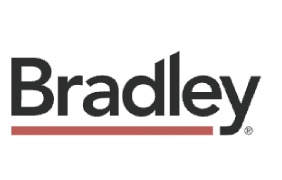Without the option to declare bankruptcy—due to federal illegality—the only recourse for cannabis businesses in distress to become solvent and / or distribute assets to creditors is to enter into an expensive and difficult judicial cannabis receivership. Receiverships are inherently adversarial, and the required input from third-party experts, lawyers and regular engagement with the courts can be incredibly costly.
Meanwhile, businesses operating in mainstream sectors have the ability to declare bankruptcy. This is also a court-ordered procedure that allows companies to satisfy lenders by liquidating assets, restructuring operations and finances, and to enjoy a break of sorts to make deals with creditors and renegotiate contracts and leases. Without a change to federal banking laws, cannabis companies are blocked from the benefits of bankruptcy, and the situation is only getting worse.
Given the current tight capital market environment, the increase in cannabis distressed assets, and the shortage of options to cannabis operators to address said challenges, is there a possible alternative option to alleviate the rather dire situation?
Genesis—Transition from Equity Financing to Debt Financing
Equity financing has been the most prominent way to raise capital in cannabis for the last several years. However,recent data collected by Viridian Capital Advisorsreveals that debt currently makes up 93% of capital raised by U.S. cannabis cultivation and retail companies, compared to 55.7% in U.S. industries overall.
This change in the capital-raising environment, which has led to an increased number of creditors in the sector, combined with continued market pressures on cannabis businesses to remain competitive, make it highly likely that the industry will inevitably see more receiverships.
Ultimately, while debt financiers are willing to lend cannabis businesses money, they expect to be paid back on time and often with high interest. If the business begins to struggle and enters a distressed phase that leads to receivership, the business assets will be sold off and the secured lenders will be the first to get paid, while the business itself is likely not to recover much.
Consider an Administrative and Collateral Agent
With receiverships punishingly expensive and the debt financing landscapebordering on predatorial, distressed cannabis businesses are desperate for any assistance or support available. An Administrative and Collateral Agent (ACA) could be the alternative support required, benefitting borrowers, lenders and regulators alike, and offering a more cost-effective and less punitive option to courts, receivers and lawyers.
Instead of dealing with the courts and an expensive court-appointed receiver, cannabis companies seeking relief could turn to an ACA to facilitate mediation between parties and create alignment within the industry, which does not exist today.
An ACA could create a level of trust, transparency and complementary positioning with industry participants that simply has not yet existed in cannabis. The use of an ACA could challenge the competing perceptions that there is already alignment between regulators, operators and lenders, or that a useful alignment between these parties could ever exist.
An ACA could be a real and valuable tool for state governments and regulators as they begin to understand that it is in their best interests to assist cannabis businesses in their states in the face of continued federal illegality and restrictions. Under a private agreement between parties, the ACA would conduct something more akin to an administrative receivership as opposed to the traditional judicial receivership that is the only current option for insolvent cannabis businesses to seek relief.
Building upon a Cannabis Credit Rating Framework
Ideally, an ACA would work within an industry-specific credit rating system for cannabis businesses in distress in order to work within an established framework for potential investors. If cannabis companies are ranked across an equitable, systematic and formulaiccredit rating system, borrowers, lenders and regulators would benefit from the quantifiable transparency afforded by said rating, and debt financing would have an inherent regulatory-like structure to prevent predatory lending. By avoiding the courts, the distressed cannabis company would save time, money and create a more attractive scenario for potential lenders.
Initial Path to Mitigating Solutions
While the current challenges facing cannabis businesses today are well documented and have risen to both creditors and regulators attention, a viable solution has yet to be identified. Most likely no one solution exists beyond waiting for the economic and capital environments to evolve. Yet, mitigating options do exist.
The introduction of an ACA is one such option. Questions remain as to the mechanics, regulatory, operative and fiscal alike, as well as who to trust to take it on. The introduction of a credit rating framework is the first step to creating a solid foundation from within which an ACA can operate transparently and equitably. Any potential buy-in from regulators, creditors and operators remains an open question.
All of that said, there is today an unprecedented set of market forces that is pushing all cannabis stakeholders to think outside of the box. The still growing opportunities in the cannabis industry, the will of operators to survive and succeed, as well as the increasing exposure from creditors, all point to not only an acceptance for the need of an alternative, but to the drive to do things differently.
Is your cannabis business in distress? Would you benefit from expert guidance and support in deciding on whether to enter into a receivership?Reach out to United CMC today.



































